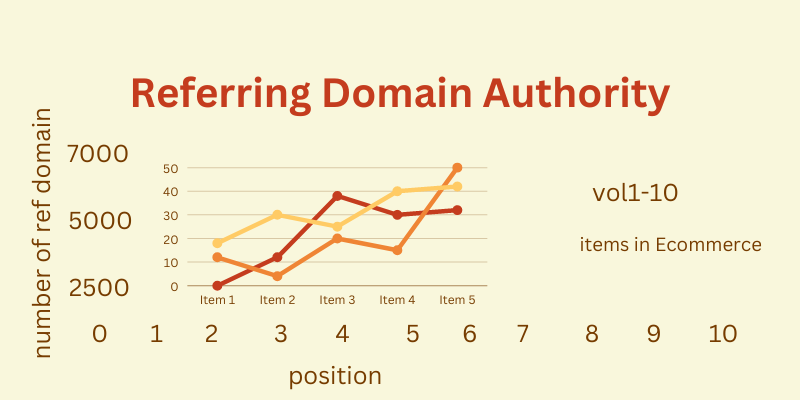- Home /
- Academy /
- eCommerce SEO /
- E-Commerce SEO - The Importance of Link Building
E-Commerce SEO: The Importance of Link Building

In the architecture of a highly visible eCommerce platform, we discussed how to find and incorporate high-potential keywords into your website. The definitive SEO checklist for successful eCommerce websites explains all of the technical boxes you must check. If you've read these articles, you're well on your way to having a highly visible eCommerce website.
The final SEO pillar we need to discuss is link building for eCommerce websites. Links are essential in SEO. The consensus is that they contribute more than half of your SEO success. Most eCommerce websites struggle the most with link building in SEO because it is something they cannot completely control. Link building, however, does not have to be difficult. It, like all aspects of SEO, necessitates a good strategy and a lot of hard work.
You will understand how to approach link building for your eCommerce website after reading this article. We'll leave you with some intriguing link-building angles that can be applied to almost any niche.
What is Link Building?
Link building is the process of getting other websites to link to yours. All links are counted as votes for your websites, passing on authority, relevancy, and trust.

a) Authority
In SEO, authority is extremely important. There are three kinds of power:

- Domain Authority: Considers all links to the domain.
- Page Authority: only considers links to the page in question.
- Link Authority: refers to the authority that a link transmits from page A to page B.
The higher the level of authority, the better. Receiving a link from a website such as CNN.com, for example, is every SEO's dream.
b) Relevancy
A relevant link is a link to a page from another page that is topically related. If you sell televisions, getting a link from a blog post about the best televisions to watch Netflix on is fantastic. As a result, the topic relevance of your website is influenced by the relevancy of links.
c) Trust
The degree to which search engines trust your domain is referred to as trust. The higher the number, the better. Trust is earned through experience, adhering to Google's guidelines, and obtaining links from credible websites. A newspaper is an example of a reliable website. Continue to build trustworthy links ethically if you want to provide good service to your visitors. Trust will emerge naturally.
Build links that pack a punch
Link communicates authority, relevance, and trust. What else should you keep an eye out for? These are the other important properties of links:
- The origin and destination of the link
- Nofollow attribute for anchor text
a) Link origin and link target
When we talk about link origin, we mean the page where a link is placed. If you link from your homepage to your 'About us page, the link origin is your homepage. The 'About us page is the link's target.
The link origin and link target should ideally be about the same thing. Having links to the homepage is beneficial because you can channel the authority of the homepage to other pages on your website. If you want to rank in competitive niches with pages other than your homepage, having links to these pages is critical. Deeplinks are links to pages other than the homepage.
b) Anchor text
The anchor text, which is usually underlined and blue, is the clickable portion of the link. Ideally, the anchor text should include keywords for which you want your website to rank. This is known as 'exact match anchor text.' But don't overdo it; having too many links with exact match anchor text may signal to search engines that you're attempting to game the system, which may result in a penalty. The anchor text must vary and appear natural.
c) Nofollow attribute
The nofollow attribute is used to indicate that a link was purchased or that you do not want to be associated with the websites to which you are linking. When a link is marked as nofollow, only a portion of the link authority is passed to the link target. Don't be concerned if your website contains links with the nofollow attribute. Furthermore, links with the nofollow attribute are not worthless. Although Wikipedia links are followed, they retain relevance, trust, and some link authority.
Link-building tactics
The following are some of the useful tactics of link-building
1. Adopt Video Marketing
Through walk-throughs, narratives, and in-depth instructional videos, video content helps you bring your brand's products (and the stories behind them) to life. You can also use this medium to create a variety of content for your target audience, ranging from educational how-tos to humorous stories and slapstick comedy.

This is extremely useful in the quest to create effective links that engage customers and increase click-through rates. Video content ranks well on Google and has the potential for featured snippets.
2. Use Extreme Products to Create Links
Stocking and promoting extreme products is another way to gain links and generate buzz about your brand (either as part of a seasonal range or a new segment of your business).
3. Collaborate with influencers to create content assets
According to research, Millennials (the current dominant consumer demographic) are becoming increasingly skeptical of big brands and sponsored messages, making the process of link-building even more difficult for eCommerce brands. This is a challenge that online fashion retailer ASOS neatly avoided by empowering individual influencers to create powerful content assets and build links on their behalf through their ASOS Insiders campaign.
4. Include a feature that allows your products to be shared
Getty Images Embed, which made around 50 million images available for free use on blogs and social media websites, was one of the most effective link-building campaigns in recent years.
The key to this campaign was that it made the product shareable with potential customers, paving the way for the idea to scale and drive traffic back to their website.
5. Distribute Product Samples to Influential Bloggers
Offering free product samples to bloggers in your niche can be an excellent way to gain coverage and drive traffic, engagement, and links to your website. I recommend only working with bloggers who are well-known in your industry. Conduct research on your competitors to see which bloggers they regularly collaborate with and where their products have been reviewed across the web. You can do this by using software such as Ahrefs or Majestic to identify which bloggers have linked back to your competitors, or by conducting a simple Google search, such as "product name + review."
6. Employ Integrated Content Marketing and Create an Engaging Blog
As Google's algorithms have evolved and prioritized natural links, brands have become more inclined to target content as the primary component of their strategy.
As previously stated, this does not direct customers to key product pages, necessitating the creation of an internal linking structure that integrates your content marketing strategy. This has a positive impact on both the customer journey and the effectiveness of your link-building techniques, so it's well worth investing in.
7. Create a Network of Independent Brand Ambassadors
What if you're a new eCommerce brand with limited marketing resources and little more than a product to sell? You want to use link building to drive awareness and traffic to your website, but what exactly is the right strategy to deploy here? You could do far worse than to emulate Black Milk Clothing, a fashion brand that has grown from humble beginnings to a multi-million dollar company employing more than 150 people. These communities have become a breeding ground for motivated brand ambassadors, who are engaged with targeted and personalized content that includes links to new product launches and existing ranges. These ambassadors then share these product links and drive traffic directly to commercial pages, while also continuing the discussion even when there is nothing new to discuss.
This approach essentially empowers customers to act as brand ambassadors by providing them with the tools they need to help build and share organic and well-received links.
Conclusion
While many will tell you that link building is no longer an effective way of driving traffic to your website and engaging customers, this is entirely dependent on the techniques you use to achieve these objectives.
Hopefully, these pointers and examples will help to inform your future link-building strategies while also developing sustainable techniques that can drive long-term growth.
Link building is a challenge for many eCommerce website owners. This limits their SEO success because links are so important in determining whether or not you're successful in SEO. Don't fall into the trap of believing that link-building is impossible. It isn't; you can also create links. And you can get started right away by employing the 12 link-building strategies outlined in this article.
Start using PagesMeter now!
With PagesMeter, you have everything you need for better website speed monitoring, all in one place.
- Free Sign Up
- No credit card required

Are you looking for a comprehensive SEO checklist for your eCommerce website to ensure that it is search engine optimized?

ECommerce is concerned with the technical structure of your eCommerce store and how your website presentation, business, and data layers interact with one another.
Uncover your website’s SEO potential.
PagesMeter is a single tool that offers everything you need to monitor your website's speed.